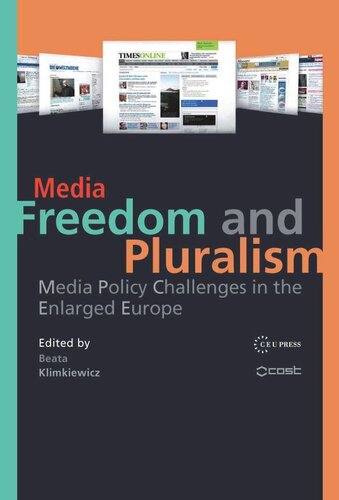

Most ebook files are in PDF format, so you can easily read them using various software such as Foxit Reader or directly on the Google Chrome browser.
Some ebook files are released by publishers in other formats such as .awz, .mobi, .epub, .fb2, etc. You may need to install specific software to read these formats on mobile/PC, such as Calibre.
Please read the tutorial at this link: https://ebookbell.com/faq
We offer FREE conversion to the popular formats you request; however, this may take some time. Therefore, right after payment, please email us, and we will try to provide the service as quickly as possible.
For some exceptional file formats or broken links (if any), please refrain from opening any disputes. Instead, email us first, and we will try to assist within a maximum of 6 hours.
EbookBell Team

0.0
0 reviewsAddresses a critical analysis of major media policies in the European Union and Council of Europe at the period of profound changes affecting both media environments and use, as well as the logic of media policy-making and reconfiguration of traditional regulatory models. The analytical problem-related approach seems to better reflect a media policy process as an interrelated part of European integration, formation of European citizenship, and exercise of communication rights within the European communicative space. The question of normative expectations is to be compared in this case with media policy rationales, mechanisms of implementation (transposing rules from EU to national levels), and outcomes.